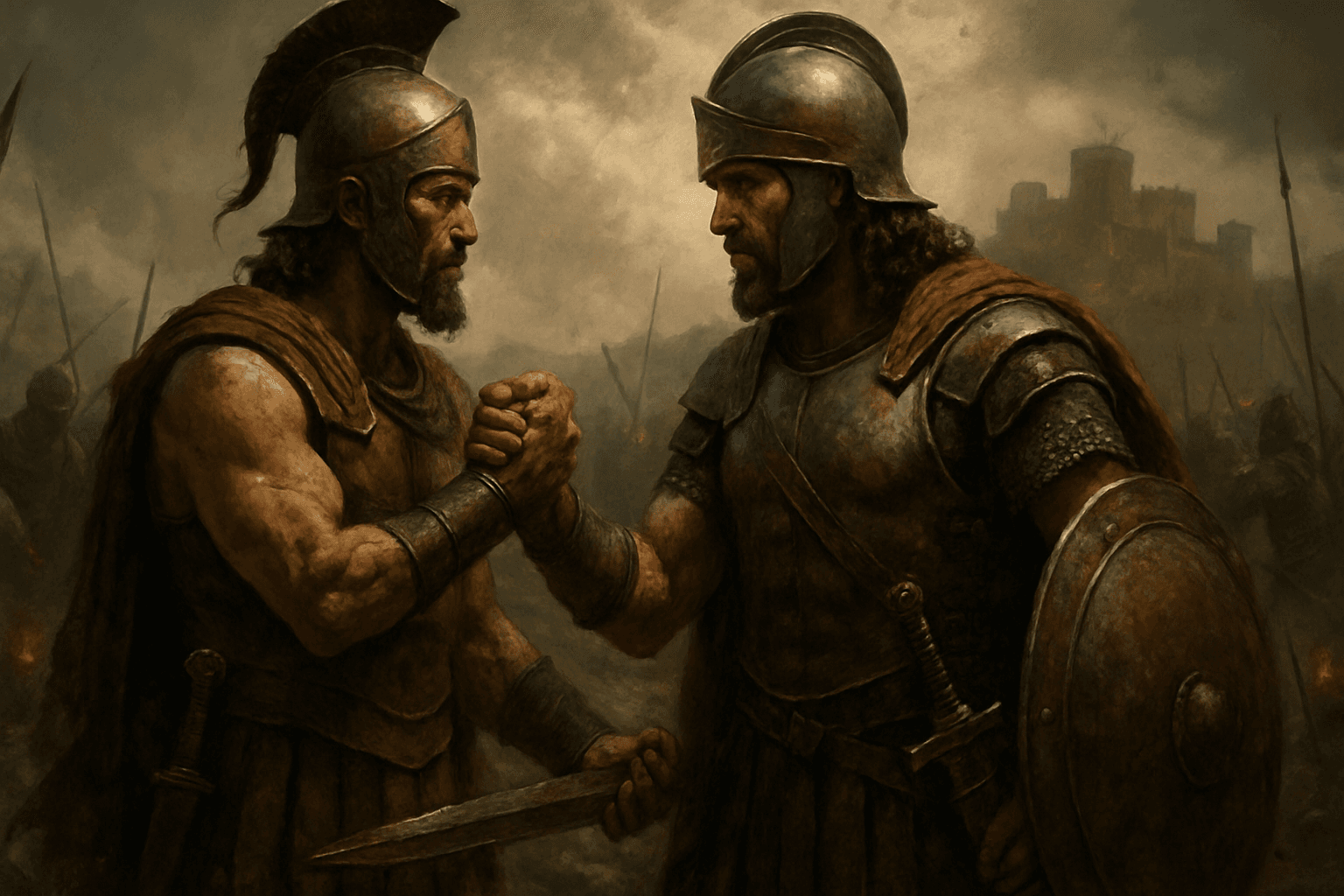Friendship and Loyalty in The Iliad: Bonds Forged in Battle

When you think of epic battles and the glory of war, friendship and loyalty might not be the first themes to come to mind. However, in Homer's The Iliad , these very themes are intricately woven into the fabric of the narrative, revealing how they influence the characters’ actions and the course of the Trojan War.
From the very beginning, we are thrust into a world where loyalty is tested, allegiances shift, and friendships can lead to both triumph and tragedy. The rift between Achilles and Agamemnon sets the stage for a conflict that stretches beyond personal pride; it showcases the fragility of camaraderie when honor is at stake. Achilles’ withdrawal from battle after feeling dishonored illustrates how personal grievances can fracture even the strongest bonds of loyalty. This sets off a chain reaction that affects not only the Greek forces but also the heart of Achilles himself, particularly in his relationship with Patroclus.
As we dive deeper into the epic, we see how friendship manifests in various forms. The loyalty displayed by characters like Diomed and Ulysses, who risk their lives for one another, exemplifies the warrior spirit that drives them through the chaos of war. Their shared experiences forge a camaraderie that becomes the backbone of their efforts against the Trojans. Even in moments of despair, like when Nestor advises Agamemnon against retreat, the loyalty among the Greek leaders shines through, revealing that their bonds are a source of strength in the face of adversity.
Yet, loyalty in The Iliad is not just about comradeship among friends; it also extends to family ties and the duty to one’s city. Hector’s fierce loyalty to Troy and his family, especially in his relationship with Andromache, illustrates the personal stakes of loyalty in war. His determination to protect his city, even at the cost of his life, presents a poignant contrast to Achilles’ journey of vengeance after the death of Patroclus.
The theme reaches a heartbreaking climax when Patroclus falls in battle, a loss that drives Achilles into a rage-fueled quest for vengeance against Hector. This moment not only underscores the profound bond between Achilles and Patroclus but also highlights the devastating impact of loss on loyalty. Achilles’ grief transforms into a relentless pursuit to honor his fallen friend, showcasing how friendship can inspire both courage and tragedy.
In the end, The Iliad presents a complex tapestry of friendship and loyalty, where the bonds formed in battle can lead to both glory and destruction. Achilles’ confrontation with Hector, followed by his poignant interaction with Priam, underscores that even amidst the chaos of war, the themes of compassion, mercy, and shared sorrow can emerge, bridging the divides forged by loyalty and conflict.
So, as we reflect on these characters and their journeys, we’re left with a profound understanding: in the world of The Iliad , friendship and loyalty are not mere ideals; they are the very forces that shape destinies, driving individuals to extraordinary lengths in the name of love and honor. In a world fraught with conflict, perhaps it is these bonds that shine the brightest, reminding us of our shared humanity amidst the chaos.
Books: The Iliad
Authors: Homer
Publishers: Public Domain